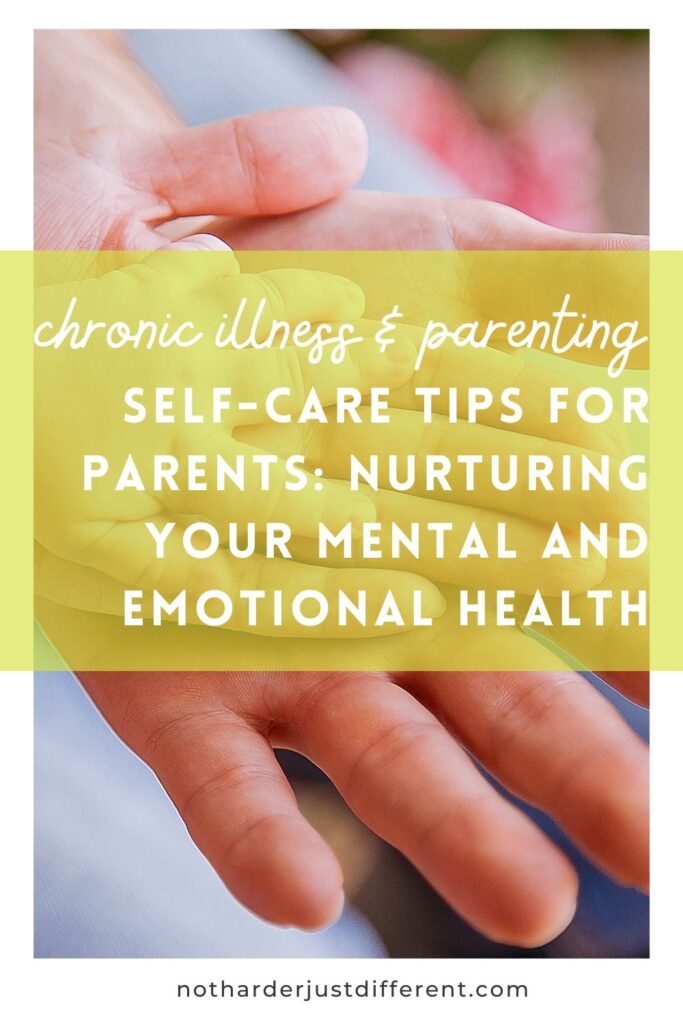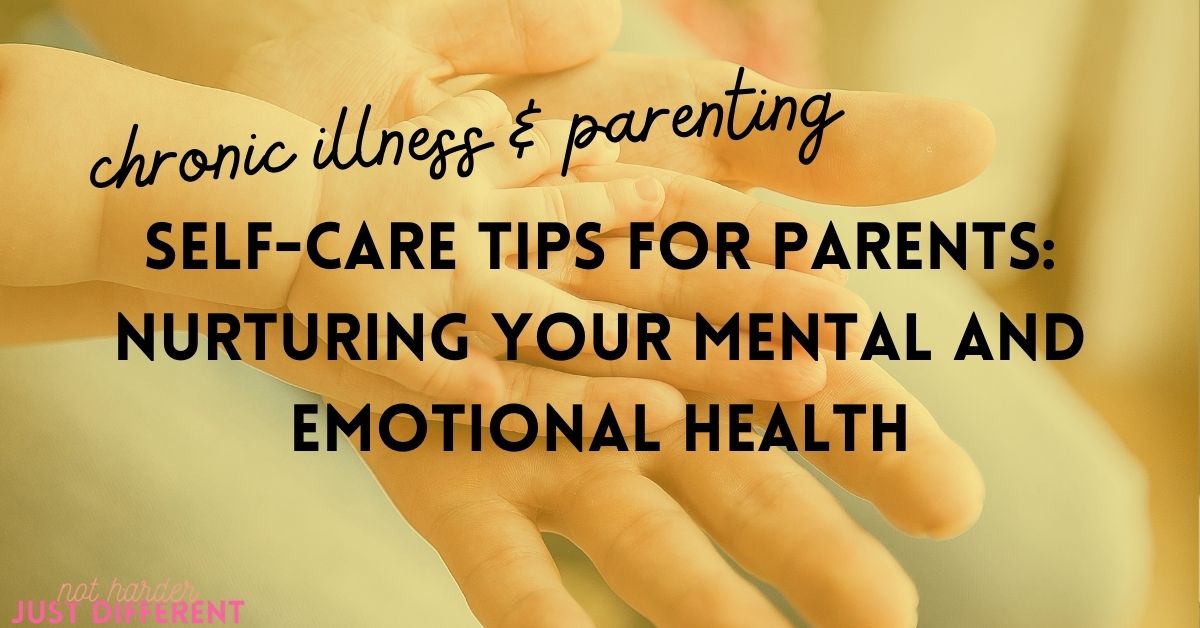Disclaimer: As a future Licensed Clinical Social Worker (LCSW) currently pursuing my master’s degree, I am passionate about sharing insights and information related to parenting, autism and homeschooling based on my personal experiences and research. However, the content shared on this blog is not intended to substitute professional advice, diagnosis, or treatment. Parenting is a deeply personal journey, and while I strive to provide valuable insights, every family and situation is unique. Readers are encouraged to consult with qualified professionals for personalized guidance tailored to their specific needs and circumstances.
Parenting is a beautiful journey filled with joy, but it also comes with its unique challenges, especially when you’re managing a chronic illness. As parents, we often put our children’s needs first, sometimes neglecting our own well-being in the process. It’s crucial to remember that taking care of ourselves is not selfish; it’s essential for us to be the best parents we can be, and these self-care tips for parents are here to help.
Navigating the ups and downs of parenting while dealing with a chronic illness can be overwhelming. From managing symptoms to juggling doctor appointments and household chores, it’s easy to feel drained both mentally and emotionally. However, incorporating self-care practices into our daily routine can make a world of difference in how we cope with the challenges we face.

Self-Care Tips for Parents
Prioritize Your Needs
Remember, you can’t pour from an empty cup. Prioritize self-care by setting aside time each day to focus on your physical, mental, and emotional well-being. Whether it’s a few minutes of meditation, a leisurely walk in nature, or enjoying your favorite hobby, find what brings you joy and replenishes your spirit.
Seek Support
You don’t have to navigate this journey alone. Reach out to friends, family members, or support groups who understand what you’re going through. Surround yourself with people who uplift and encourage you, and don’t hesitate to ask for help when you need it. Remember, seeking support is a sign of strength, not weakness.
Practice Mindfulness
Mindfulness can be a powerful tool in managing stress and anxiety. Take time to be present in the moment, focusing on your thoughts, feelings, and sensations without judgment. Whether it’s through deep breathing exercises, journaling, or simply taking a moment to appreciate the beauty around you, mindfulness can help you find peace amid life’s challenges.
Establish Boundaries
Setting boundaries is essential for preserving your energy and protecting your well-being. Learn to say no to commitments or activities that drain you, and don’t hesitate to communicate your needs to your loved ones. By establishing healthy boundaries, you create space for self-care and reduce feelings of overwhelm.
Practice Gratitude
Cultivating an attitude of gratitude can transform how you perceive life’s challenges. Take time each day to reflect on the things you’re thankful for, whether it’s a beautiful sunset, a kind gesture from a friend, or a moment of laughter with your children. Focusing on the positive aspects of your life can uplift your mood and foster resilience in the face of adversity.

Nourish Your Body
Pay attention to your body’s needs and fuel it with nutritious foods that promote overall health and well-being. Aim for a balanced diet rich in fruits, vegetables, lean proteins, and whole grains. Stay hydrated, get adequate rest, and engage in regular physical activity that feels good for your body. Taking care of your physical health can positively impact your mental and emotional state.
Create a Supportive Environment
Surround yourself with positivity and create a supportive environment that nurtures your well-being. Surround your living space with things that bring you joy, whether it’s uplifting quotes, comforting blankets, or soothing scents. Make your home a sanctuary where you can retreat and recharge when you need a moment of peace.
Practice Self-Compassion
Be gentle with yourself and practice self-compassion, especially on challenging days. Acknowledge your limitations and imperfections without judgment, recognizing that you’re doing the best you can with the circumstances you’re facing. Treat yourself with the same kindness and understanding you would offer to a dear friend, embracing your humanity with grace and acceptance.
Stay Connected
Maintain connections with friends, family members, and loved ones who uplift and support you. Even when you’re dealing with health challenges, nurturing meaningful relationships can bring joy and fulfillment to your life. Whether it’s a phone call, a text message, or a virtual coffee date, prioritize staying connected with those who bring positivity into your life.
Celebrate Small Victories
In the midst of life’s challenges, take time to celebrate your achievements, no matter how small they may seem. Whether it’s completing a household task, managing a symptom flare-up, or simply getting out of bed in the morning, every accomplishment deserves recognition. By celebrating your victories, you acknowledge your resilience and strength in the face of adversity.
Remember, self-care looks different for everyone, so don’t be afraid to explore what works best for you. By prioritizing your mental and emotional health, you’re not only taking care of yourself but also setting a positive example for your children. Embrace the journey of parenting with chronic illness with compassion and grace, knowing that you are worthy of love, care, and support.

